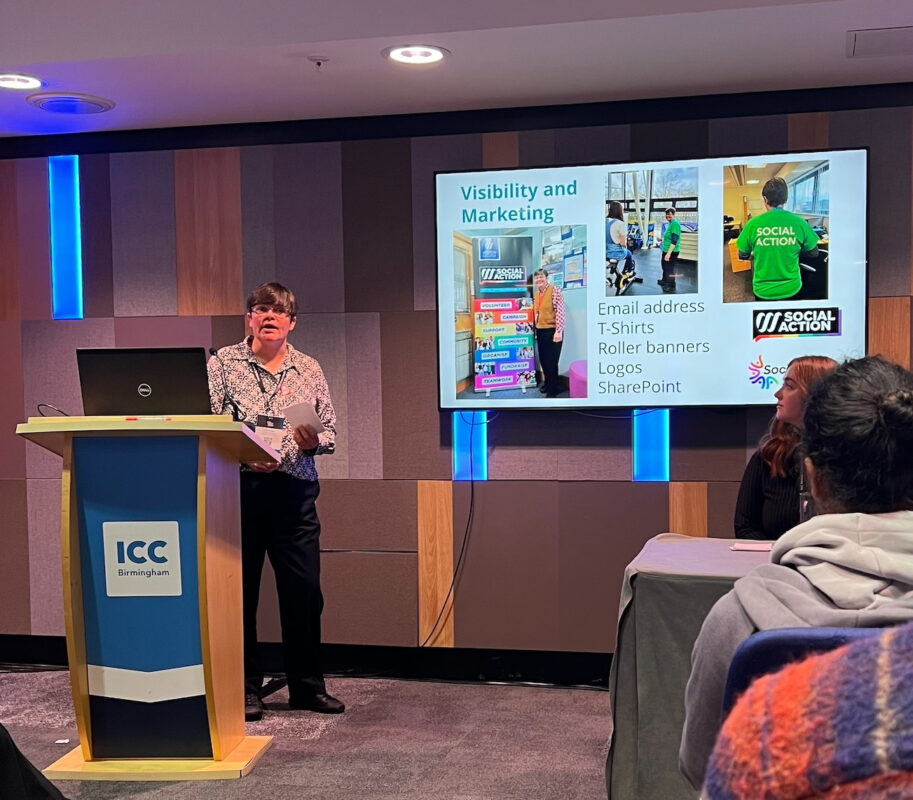Boost of £122m for people receiving mental health support to find work

- National roll out for vital NHS service to help 100,000 people managing mental health issues find, stay in or return to work and grow the economy
- £122m boost to service will give those receiving mental health support the opportunity to speak to employment advisers
- Employment advisers and therapists will work together so that a person can return to or find work easier and faster – driving economic growth
Across England, people with common mental health problems like stress, anxiety and depression will have access to an employment adviser thanks to new Government funding.
£122 million is being invested to roll out a vital NHS England service nationally, providing those who receive mental health support with employment advice to help them stay in work or return to the job market quicker, with the right support in place.
The service brings therapists and employment advisers together to help people with mental health problems such as anxiety and depression find work tailored to them. With strong evidence that being in work improves mental health, supporting more people into work will not only fuel a thriving labour market, but also increase individual prosperity.
Continued support to help individuals focus on and progress in their careers will in turn help grow the economy.
Work and Pensions Secretary, Chloe Smith said:
“On World Mental Health Day, it is important to recognise the virtuous circle between health and work – we know that giving people the support they need to work is very good for their long term health.
“The Government’s growth-focused agenda will deliver jobs, higher wages and greater opportunities – and I am delighted that people who have faced barriers to entering the workforce due to poor mental health will now be able to access support across England.
“Helping people access both clinical support for their mental health as well as employment advice gives them the tools they need to get into or return to work. This is vital to helping drive down inactivity and growing our economy so we can deliver more money and support for public services such as these.”
Health and Social Care Secretary and Deputy Prime Minister, Thérèse Coffey, said:
“Good health and wellbeing of the nation is also good for the economic health of the nation and this government is committed to supporting those not working due to ill health.
“Offering employment support to people under the care of NHS mental health services will help them start, stay, and succeed in work – improving their wellbeing and resilience as well as growing our economy.”
Claire Murdoch, NHS national mental health director, said:
“The NHS is committed to keep doing its part to support those with mental health issues who want to work, and offering employment advice from experienced advisors through our Talking Therapies services across the country is a fantastic and important development, especially in times of economic challenges and increased need for mental health support.
“We know that being in work has many benefits for our mental health and wellbeing, from increasing our sense of purpose to providing a structured routine, and while thousands of people already benefit from this ground-breaking service, this wider country-wide rollout means all people struggling with anxiety and depression will be able to access both our usual NHS Talking Therapies offer, via their GP or online registration to their local service, and expert employment advice, in all areas of the country.”
Referral to Improved Access to Psychological Therapies (IAPT), often referred to as ‘NHS talking therapies’ services, can be through a GP, healthcare professional, or through self-referral. The use of IAPT services, taking part in psychological treatment, and employment support is purely voluntary.
NHS England Therapists and Employment Advisers already work together in 40% of the country. Over the three-year Spending Review period the service will be extended nationally with recruitment and training of around 700 employment advisers so that up to 100,000 people can receive the combined offer each year from 2024/25, accessing the support to start, stay and succeed in work.
The service is already fully operational in Cheshire and The Wirral, providing people with the support to get back on their feet and back into work. Employment Advisers provide compassionate support for those who have been through truly difficult times.
Testimonials:
Peter*
After the death of his wife and assuming sole caring responsibilities for his two children, Peter had been out of work with grief and stress for two years. After using his local talking therapies Peter self-referred himself to employment advisers, he worked with his Employment Adviser to find roles that would be manageable with his childcare commitments and help him benefit from the social aspects of returning to work. To prepare him for job interviews and build his confidence, the Employment Adviser helped Peter complete interview training and provided him with guidance on returning to work after a long absence. Through the support of his Employment Adviser, Peter is now in flexible part-time employment as a salesman and delivery driver and is excited he is working in a role that suits his lifestyle.
Carol*
Carol was absent from employment for a period of two years as she cared for her parents up until their deaths. Carol suffered with anxiety due to this and went to talking therapies to help. After this period Carol felt employment would help with her confidence. Carol worked with her Employment Adviser to improve her CV, enhance her job searching skills and build up her confidence. The Employment Adviser also helped refine Carol’s interview skills, which eased her anxiety and supported her to be successful at a job interview for a care home. Once offered the job, Carol was further supported with guidance on returning to work after a prolonged period of absence. She has now completed her training at the care home and through the support she has received, her life has changed drastically for the better.











Responses